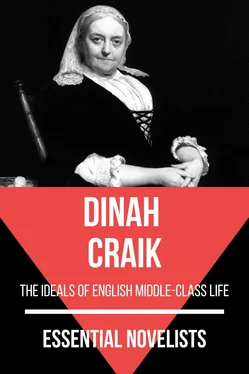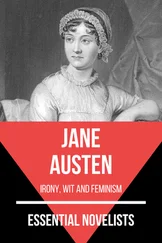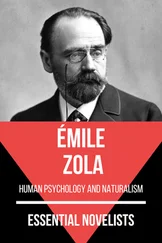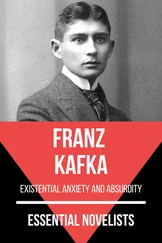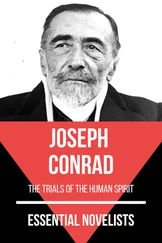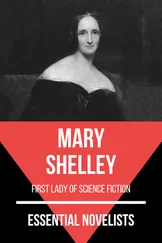And from the handful of books that usually lay strewn about wherever we two sat, I took up one he had lately got, with no small pains I was sure, and had had bound in its own proper colour, and presented it to me —“The Purple Island,” and “Sicelides,” of Phineas Fletcher. People seldom read this wise, tender, and sweet-voiced old fellow now; so I will even copy the verses I found for John to read.
“Here is the place. Thyrsis is just ending his ‘broken lay.’
‘Lest that the stealing night his later song might stay —’”
“Stop a minute,” interrupted John. “Apropos of ‘stealing night,’ the sun is already down below the yew-hedge. Are you cold?”
“Not a bit of it.”
“Then we’ll begin:—
‘Thrice, oh, thrice happy, shepherd’s life and state:
When courts are happiness, unhappy pawns!’
That’s not clear,” said John, laying down the book. “Now I do like poetry to be intelligible. A poet ought to see things more widely, and express them more vividly, than ordinary folk.”
“Don’t you perceive — he means the pawns on the chess-board — the common people.”
“Phineas, don’t say the common people — I’m a common person myself. But to continue:—
‘His cottage low, and safely humble gate,
Shuts out proud Fortune, with her scorns and fawns:
No feared treason breaks his quiet sleep.
Singing all day, his flocks he learns to keep,
Himself as innocent as are his quiet sheep.’
(Not many sheep at Enderley, I fancy; the Flat chiefly abounds in donkeys. Well —)
‘No Serian worms he knows, that with their thread,
Drew out their silken lives — nor silken pride —’
Which reminds me that —”
“David, how can you make me laugh at our reverend ancestor in this way? I’m ashamed of you.”
“Only let me tell you this one fact — very interesting, you’ll allow — that I saw a silken gown hanging up in the kitchen at Rose Cottage. Now, though Mrs. Tod is a decent, comely woman, I don’t think it belonged to her.”
“She may have lodgers.”
“I think she said she had — an old gentleman — but HE wouldn’t wear a silken gown.”
“His wife might. Now, do go on reading.”
“Certainly; I only wish to draw a parallel between Thyrsis and ourselves in our future summer life at Enderley. So the old gentleman’s wife may appropriate the ‘silken pride,’ while we emulate the shepherd.
‘His lambs’ warm fleece well fits his little need —’
I wear a tolerably good coat now, don’t I, Phineas?”
“You are incorrigible.”
Yet, through all his fun, I detected a certain under-tone of seriousness, observable in him ever since my father’s declaration of his intentions concerning him, had, so to speak, settled John’s future career. He seemed aware of some crisis in his life, arrived or impending, which disturbed the generally even balance of his temperament.
“Nay, I’ll be serious;” and passing over the unfinished verse, with another or two following, he began afresh, in a new place, and in an altogether changed tone.
“‘His certain life, that never can deceive him,
Is full of thousand sweets and rich content;
The smooth-leaved beeches in the field receive him
With coolest shades till noon-tide’s rage is spent;
His life is neither tost on boisterous seas
Of troublous worlds, nor lost in slothful ease.
Pleased and full blest he lives, when he his God can please.
‘His bed of wool yields safe and quiet sleeps,
While by his side his faithful spouse hath place;
His little son into his bosom creeps,
The lively image of his father’s face;
Never his humble house or state torment him,
Less he could like, if less his God had sent him;
And when he dies, green turfs with grassy tomb content him.’”
John ceased. He was a good reader — but I had never heard him read like this before. Ending, one missed it like the breaking of music, or like the inner voice of one’s own heart talking when nobody is by.
“David,” I said, after a pause, “what are you thinking about?”
He started, with his old quick blush —“Oh, nothing — No, that’s not quite true. I was thinking that, so far as happiness goes, this ‘shepherd’s’ is my ideal of a happy life — ay, down to the ‘grassy tomb.’”
“Your fancy leaps at once to the grassy tomb; but the shepherd enjoyed a few intermediate stages of felicity before that.”
“I was thinking of those likewise.”
“Then you do intend some day to have a ‘faithful spouse and a little son’?”
“I hope so — God willing.”
It may seem strange, but this was the first time our conversation had ever wandered in a similar direction. Though he was twenty and I twenty-two — to us both — and I thank Heaven that we could both look up in the face of Heaven and say so! — to us both, the follies and wickednesses of youth were, if not equally unknown, equally and alike hateful. Many may doubt, or smile at the fact; but I state it now, in my old age, with honour and pride, that we two young men that day trembled on the subject of love as shyly, as reverently, as delicately, as any two young maidens of innocent sixteen.
After John’s serious “God willing,” there was a good long silence. Afterwards, I said —
“Then you propose to marry?”
“Certainly! as soon as I can.”
“Have you ever —” and, while speaking, I watched him narrowly, for a sudden possibility flashed across my mind —“Have you ever seen any one whom you would like for your wife?”
“No.”
I was satisfied. John’s single “No” was as conclusive as a score of asseverations.
We said no more; but after one of those pauses of conversation which were habitual to us — John used to say, that the true test of friendship was to be able to sit or walk together for a whole hour in perfect silence, without wearying of one another’s company — we again began talking about Enderley.
I soon found, that in this plan, my part was simply acquiescence; my father and John had already arranged it all. I was to be in charge of the latter; nothing could induce Abel Fletcher to leave, even for a day, his house, his garden, and his tan-yard. We two young men were to set up for a month or two our bachelor establishment at Mrs. Tod’s: John riding thrice a-week over to Norton Bury to bring news of me, and to fulfil his duties at the tan-yard. One could see plain enough — and very grateful to me was the sight — that whether or no Abel Fletcher acknowledged it, his right hand in all his business affairs was the lad John Halifax.
On a lovely August day we started for Enderley. It was about eight miles off, on a hilly, cross-country road. We lumbered slowly along in our post-chaise; I leaning back, enjoying the fresh air, the changing views, and chiefly to see how intensely John enjoyed them too.
He looked extremely well today — handsome, I was about to write; but John was never, even in his youth, “handsome.” Nay, I have heard people call him “plain”; but that was not true. His face had that charm, perhaps the greatest, certainly the most lasting, either in women or men — of infinite variety. You were always finding out something — an expression strange as tender, or the track of a swift, brilliant thought, or an indication of feeling different from, perhaps deeper than, anything which appeared before. When you believed you had learnt it line by line it would startle you by a phase quite new, and beautiful as new. For it was not one of your impassive faces, whose owners count it pride to harden into a mass of stone those lineaments which nature made as the flesh and blood representation of the man’s soul. True, it had its reticences, its sacred disguises, its noble powers of silence and self-control. It was a fair-written, open book; only, to read it clearly, you must come from its own country, and understand the same language.
Читать дальше
